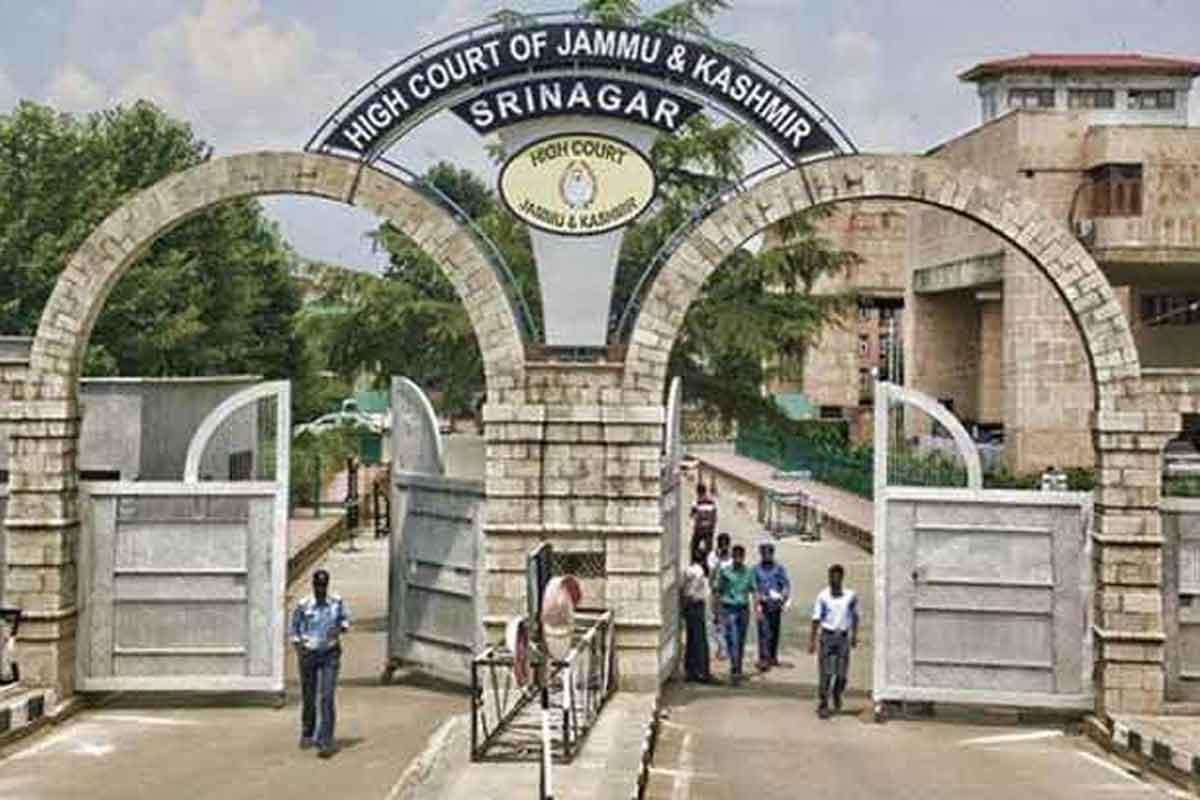Srinagar: The Chief Justice of High Court of Jammu and Kashmir, Gita Mittal, has written to Dr Jitendra Singh, Union Minister of State, seeking the establishment of the Administrative Tribunal with multiple benches having permanent seats in Jammu and Srinagar. The move came after a Central government order by virtue of which about 38,000 cases pertaining to service matters, pending before the J&K High Court, were shifted to Chandigarh. The move did not elicit any reaction in Kashmir valley, but the Jammu Bar Association and lawyers, along with government employees, showed their resentment against the move. A Jammu-based lawyer said, “This decision of the government will leave hundreds of lawyers in Jammu jobless and will also have an impact on over 6 lakh government employs in the Union Territory of Jammu and Kashmir.” He said that employees and their lawyers, both retired and working, will now have to travel to Chandigarh as their cases will be heard there.
Sensing trouble, Jammu BJP leaders talked to Dr Jitendra Singh to address this problem, as it only added to the alleged anger in the Jammu region as people perceive that they are being disempowered, following the abrogation of Article 370 in Jammu and Kashmir. Jammu High Court Bar Association President Abhinav Sharma, who is with BJP, told media that very soon, a permanent CAT bench would be in Jammu and lawyers of Jammu should not worry.
On 1 May 2020, the Central government said that service matters of government employees in the Union Territories of J&K and Ladakh will be heard by the J&K bench of CAT. But lawyers in Jammu said that they need half-a-dozen benches in Jammu and an equal number in Srinagar for the pending thousands of cases to be heard.
The Chief Justice, in her communication, has expressed concern over the lack of required number of benches with permanent seats in Jammu and Srinagar. In her communication, Chief Justice has said, “With the enforcement of the J&K Re-organization Act, 2019, notified vide SO 2889 (E) dated 9 August 2019, and the issuance of notification dated 29 April 2020, bearing No. 208, some 31,641 pending service matters have to be transferred from both wings of the High Court of Jammu and Kashmir to the Administrative Tribunals and in the absence of any infrastructure or registry for operationalising the functioning of the Tribunal in J&K and only a single circuit bench of the Chandigarh Bench of the Tribunal, it would be hopelessly insufficient to provide efficacious dispensation to the disputants in service matters in the UT of J&K as well as in Ladakh.”
She has urged the Minister in her letter, “Administrative Tribunal with multiple benches having permanent seats both in Jammu as well as Srinagar, the fundamental right of access to justice as also the legitimate expectation of efficacious and expeditious remedies for disputes would be adversely impacted.” It is in place to mention that Jammu is already brewing with anger as protests were held against the new domicile law opening government jobs in J&K to every citizen of the country, forcing the Union Ministry of Home Affairs to reverse the decision and reserve the jobs for the youth of J&K. The Kashmir Bar Association is looking to Jammu for reversal of this decision, as most of the lawyers deal with service cases here. A senior lawyer of J&K High Court said that they were hopeful that the Jammu Bar Association will be able to get this Central decision reversed. Arrest of three former CMs, amendments in domicile laws, stopping the Darbar Move in Jammu and now shifting of cases of government employees to Chandigarh from Srinagar, have given rise to resentment.
Meanwhile, the Chief Information Commissioner will hear complaints and appeals from J&K. The National Informatics Centres across the UT will host audio and visual interactions in the CIC proceedings, an official press release said. Recently, Lieutenant-Governor Girish Chandra Murmu said all pending complaints from the erstwhile J&K Information Commission would be transferred to the Central Information Commission, New Delhi.

